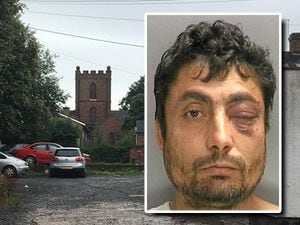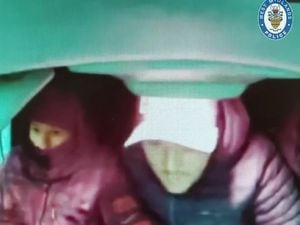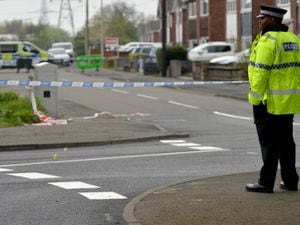REVEALED: How Romanian murderer was allowed to enter UK and attempt to kill again
Gheorghe Mihai did not have to reveal his conviction before being allowed into the UK.

He had murdered before in his home country but that didn't stop Romanian killer Gheorghe ‘Melo’ Mihai entering this country – and trying to murder again.
The 38-year-old could not be refused entry because he had served the seven year sentence imposed in 2006 for battering a man to death with a piece of wood in September 2004, was not wanted for any other crime and did not need to tell officials of his alarming previous conviction when he came to the UK at the end of 2016.
Romania is a member of the European Union and its citizens benefit from ‘free movement’ rights.
They do not need a visa to visit or work here and so avoid the checks made on people from the majority of nations not in the EU, who must give details of any previous criminal conviction before it is decided whether to let them in.
Just eight months after his arrival Mihai launched a savage knife attack on his 23-year-old sister-in-law Roxana Mihai during a terrifying drunken rampage in Lye High Street near Stourbridge on August 7 last year.
He was found guilty of attempted murder at Wolverhampton Crown Court yesterday and warned he faces a lengthy sentence.
The car wash attendant flew into a rage after she interrupted a conversation he was having with her husband.
“He looked like a man possessed,” said an eye witness, lorry driver Kieran Langan.

Moments earlier the defendant had predicted, during a conversation with fellow Romanian Gaman Bobi, he would try to murder again.
Mr Bobi recalled: “He told me he was going to kill someone and go to jail for ten years. I thought he was joking because he had drunk too much.”
Mihai then walked across the road to a bus shelter where Roxana was waiting with her husband, the defendant’s step-brother Nicursor Gheorghe, who maintained: “He asked me for £5 three times and I explained we only had £10.
"My wife then told him we had no money because we had sent it to our family in Romania.
"He said to her ‘why are you talking in our conversation’ and took out a knife from the waist band.
"I held him to let my wife run and hide.
"When I couldn’t see her I released him not thinking that he would harm her.”
But the defendant gave chase still holding the knife and deliberately tripped the fleeing woman when he caught up with her on a car park before stabbing her at least four times.
Mr Bobi, who had followed them, said: “He raised his hand above his head and stabbed her on the face by her right eye. She was on the floor screaming. He raised his hand up again and stabbed her in the back of her head.”
Further blows rained down on the helpless victim’s body and arm before her husband reached the scene - having left their child in the care of others at the bus stop - and forced the attacker to flee with a punch in the face that left him with a black eye.
The knifeman ran to a nearby garage where he dropped the weapon and waited to be arrested by police while the victim was taken to hospital with stab wounds to the face, head, arm and back.
Garage worker Noman Fared said: “He had a knife in the right hand and the other was covering an eye which was bleeding. When I told him to drop the knife, he did. All I could understand him saying was ‘Police, police.’”
Officers later discovered that Mihai, who was living in Park Street, Lye, had murdered before.
Initially some EU member states imposed ‘transitional controls’ on citizens from Romania and Bulgaria - the poorest in the block - after they joined the EU in 2007 but these were lifted seven years later.
Since then it is estimated there has been a 50,000-strong net migration to the UK from the two countries.
The Home Office said: “Every passenger arriving in the UK at passport control is checked against police, security and immigration watch lists on arrival at the border.
"Where we are aware of individuals who pose a risk, Border Force officers can — and do — refuse them entry.
“All foreign nationals who are given a custodial sentence in the UK will be considered for removal.
"We will always seek to deport any foreign national with a history of serious or persistent convictions overseas.”
Over 40,000 foreign nationals have been kicked out of this country after committing crime in the UK since 2010, according to official figures.
Last year 6,343 got their marching orders, the highest number of removals ever.
Police can check the criminal record of a foreign national suspect through ACRO, the organisation in this country responsible for the exchange of the criminal records of citizens from EU member states.
The most serious offenders are routinely referred to Immigration Enforcement for deportation action.





